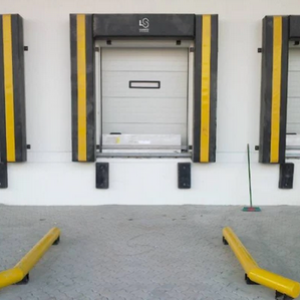The term “bonded warehouse” can be a source of confusion for some; it refers to a secure space in which goods liable to import duty and VAT can be stored. Advantageously for those making use of bonded warehousing services, there isn’t a need to actually pay customs duty and VAT until the given items are sold or taken out of the warehouse.
The “bonded” element of the expression “bonded warehouse” refers to the warehouse in question being “under bond” to the Government for the payment of customs duties or VAT on goods stored or processed within the facility.
Bonded warehouses in the UK are secure warehousing premises that comply with HM Revenue & Customs (HMRC)’s customs warehousing regulations. Such a facility is approved to store goods under bond on an importer’s behalf, thereby allowing companies that import goods from another country into the UK, to store them without having to pay customs duty.
The point at which customs duty does become payable on such goods, will be when they are removed from the warehouse and enter circulation in the UK, or when they are exported from the UK to another country and are released into circulation there.
What are the advantages of bonded warehousing services?
Here at KTL UK, we know more than a little bit about bonded warehousing services. Indeed, we make available such services across all ports and airports in the UK, which could enable you to tap into the following advantages:
- They save you from having to pay import duty if you will be exporting the goods
If you have imported certain goods so that you can then export them from the UK to another part of the world, the storage of those items in a bonded warehouse will mean you aren’t required to pay any import duty on the goods.
This can be a critically important benefit for many businesses, as it will ensure they are not effectively paying duty twice. This typically saves them around 25% to 30% per product.
- The closeness to ports helps to save money, protect goods, and reduce lead times
As bonded warehouses tend to be situated either at ports, or in close proximity to them, there is scope for you to conveniently store your imported goods at or near the port of entry, and only subsequent distribute them as and when this is actually needed.
This enables you to drive down costs throughout your organisation’s entire supply chain, as you won’t need to spend as much on transportation of the goods within the UK, lead times will be reduced, and there won’t be as much risk of the items being damaged.
- Bonded warehousing services can support your business’s cashflow
Imagine a situation in which you did not use or have access to a bonded warehouse, and your business was required to pay duty on imported goods as soon as they physically arrived in the UK. In that situation, you could find yourself effectively out of pocket if you struggle to sell the goods to customers, but you have paid duty on them anyway.
By contrast, when you make use of bonded warehousing services, you will be saved from having to pay import duty until the goods are distributed in the actual UK market (in other words, when they are sold to customers). This can have a positive effect on your business’s cashflow, if you sell significant volumes of imported goods to UK customers.
Would you appreciate learning more about our in-depth and broad-ranging warehousing and distribution expertise at KTL UK? If so, please feel free to reach out to us.
Our ability to organise the warehousing and storage facilities for your freight will help give you and your business the utmost peace of mind, with our medium-term bonded storage allowing you to defer the payment of customs and duty fees.





